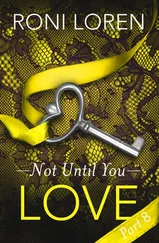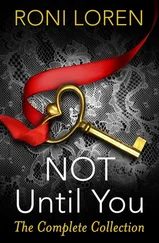‘I need to go,’ Ola said.
‘No, stay a little bit longer. I really need you now.’
‘I really need to go. I can’t stay too long.’
I followed her outside. We walked round to the front of the house. I dragged her into the vestibule that led up to the other three floors of our building. The place was quiet.
‘Ola, you probably don’t know how glad I am to see you. I’ve not stopped thinking about you for one single day.’
She threw her eyes to the floor. I touched her cheek with my hand and told her how much I loved her. I told her I understood the pressure she must be under from her mother. I told her that I was moving to Port Harcourt, that I was definitely getting a job soon even though it might not be with an oil company. I told her that she would certainly not regret her decision to wait a little bit longer for me. She may have been listening, she may not.
‘Kings, it’s too late,’ she said when I finished.
‘What do you mean “too late”?’
She looked up, she looked sad, she looked afraid.
‘I’m sorry,’ she said.
‘Sorry for what?’
‘Kings, I’m getting married.’
Consternation struck me dumb.
‘I’m getting married to someone else. Everything has been fixed.’ She paused. ‘I’m really sorry.’
At what point would Ola smile and confess that this was all part of some expensive joke? Perhaps another side effect of her being a citizen of Venus. Then I stared into her eyes and knew it was no joke. I felt as if I had been stabbed in the back, punched in the eye, struck on the head with a pestle, and bitten in the ankle, at the same time.
‘I’m sorry,’ she said again.
‘What do you mean “everything”? Do you mean the wedding?’
She nodded.
‘They’ve taken wine to my father and he’s given them a date.’
I was quiet and kept quiet and continued keeping quiet. But, sooner or later, the ugliness of life loses its power to shock. I became ready to hear the rest.
‘So how long have you known this man?’
She sighed, as if she was relieved that we had finally scaled the highest hurdle.
‘I met him a while ago,’ she said. ‘But it wasn’t until recently that things became serious.’
Aha! The Dolce & Gabbana wristwatch and the Gucci slippers and the Fendi handbag. The man was clearly very serious.
‘Who is he?’
‘There’s no need-,’
‘Just tell me… Who is he?’
‘What are you doing with that information? Are you going to plant a bomb in his car?’
Aha. The man even had a car. All my feelings rolled up into one tight ball of anger.
‘I’m just curious. What’s the point keeping it secret? After all, it’s not as if you’re going to have a secret wedding.’
She shrugged.
‘I guess you’re right. His name is Udenna. I don’t know if you’ve heard of Ude Maximum Ventures. He’s the one that owns it.’
Of course I had heard of UdeMax. His logo was branded on several buses that carried passengers from Eastern Nigeria to Northern Nigeria and back again. His logo was on several of the gwongworos that transported palm oil and tomatoes and onions. Suddenly, my mind stubbed against a rocky thought.
‘Ola, did he go to school?’
She refused to answer. I panicked. Most Igbo entrepreneurs of his kind never completed any formal education.
‘Wait! You’re planning to get married to somebody who didn’t even go to school? Ola, what’s the matter with you?’
‘You know what, Kingsley? I have to leave now. I need to go before it gets dark.’
I was about to bark something else when she pressed something into the palm of my hand. I looked. It was a wad of naira notes.
Haha.
Back in school, Ola often shared whatever little pocket money she had with me whenever I was broke, which was almost always. The difference was that then, the money was not from Udenna’s pocket. I pushed the wad back into her hand.
‘Please take it,’ she insisted.
I shook my head vigorously. Never.
‘Kings, please…’
I continued shaking my head. She forced the notes back into my palm. I flung them away. She looked hurt. She abandoned the notes on the ground and started walking away.
‘Olachi, take that money away!’
She was jolted and stopped in her tracks. She picked up the notes and hurried off. I stared into her back as piercingly as I could without committing homicide.
Two days later, the familiar sounds of grief in our living room were dispelled by the sudden din of commotion outside. Through the open louvers, I saw that a throng of neighbours and passers-by had gathered to watch. It was not often that a convoy of Land Cruisers and CR-Vs blared horns and rumbled engines on Ojike Street.
With Protocol Officer’s help, an aqua green shoe protruded into view. Cash Daddy poured out of the car.
I was ashamed to sense how relieved I felt to set my eyes on him.
My father was buried in grand style.
A few days before the funeral ceremony, Cash Daddy took out full-page obituary announcements in three of the most widely read national newspapers. At the bottom of each page, it was mentioned in bold print that he was the sponsor of the announcement. My father’s photograph took up three-quarters of the page. Uncle Boniface’s mug shot was inserted in a corner, just beneath my father’s own.
‘When people see my photograph with your father’s own,’ he said, ‘it’ll catch their attention immediately and they’ll want to read the whole thing. When they find out that I’m related to your father, they’ll make sure they attend.’
He also paid for obituary announcements on radio and television. Each one ended with the announcer declaring: ‘This burial announcement was signed by Chief Boniface Mbamalu a.k.a. Cash Daddy, on behalf of the Ibe family.’
There were cloth banners hung in strategic places from our village all the way to the express road, and large obituary fliers posted on walls and trees. We hired a fifty-eight-sitter commercial bus to transport my mother’s relatives all the way from Isiukwuato to Umuahia. Food and drink were very plenty, more than enough for the villagers to scuffle over and for the opportunistic to smuggle away in their inner garments.
During the funeral Mass, when I saw how smart my father looked in the brand new Italian suit my mother and his younger brother had dressed him up in, I could not help the tiny smile that crawled out onto my lips. My father had always preferred Western fashions to traditional African clothes. He said they were less cumbersome. Quite unlike most men of his generation, my father had no quarrel with the white man. He also preferred his climate; he said that the more temperate weather conditions made it easier to think creatively. And he preferred his diet; he said their food did not contain too much spice, which made it easier to enjoy the original taste of the ingredients. Several people mockingly referred to my father as onye ocha nna ya di ojii, the white man whose father is black, but he never cared.
From church, we accompanied the coffin back to our compound, where four of my father’s male relatives heaved it into the open grave that had been dug a few inches from our brand new building. After more than eleven years of the structure being a monument to our hardscrabbling, in just a few months the village house had been roofed, painted, and furnished in time for the burial ceremony.
The priest sprinkled some holy water over the grave and began the committal rites in an unhurried and solemn voice.
‘Our brother, Paulinus Akobudike Ibe has gone to his rest in the peace of Christ, may the Lord now welcome him to the table of God’s children in heaven.’
I stared into the grave and tried not to think that my father was lying in there, about to be concealed from me, from all of us, forever. My mother tottered beside me. Her relatives gathered closer around her. They all wore dark blue ankara fabric. My father’s relatives wore the same design, but in dark green. The younger men in the immediate extended family wore white T-shirts with my father’s photograph printed on the front. My mother, my siblings, and I wore outfits made from expensive white lace. Every category of cloth had been provided free of charge for the various groups of people.
Читать дальше
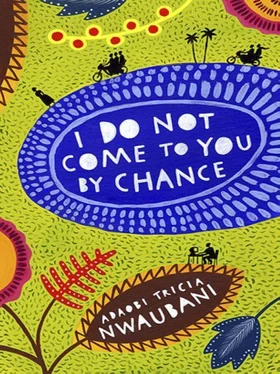
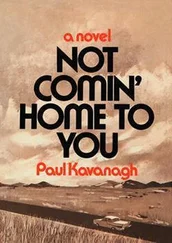

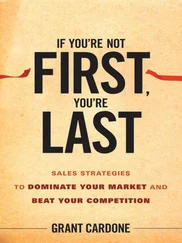

![Майкл Азеррад - Come as you are - история Nirvana, рассказанная Куртом Кобейном и записанная Майклом Азеррадом [litres]](/books/392533/majkl-azerrad-come-as-you-are-istoriya-nirvana-ra-thumb.webp)




